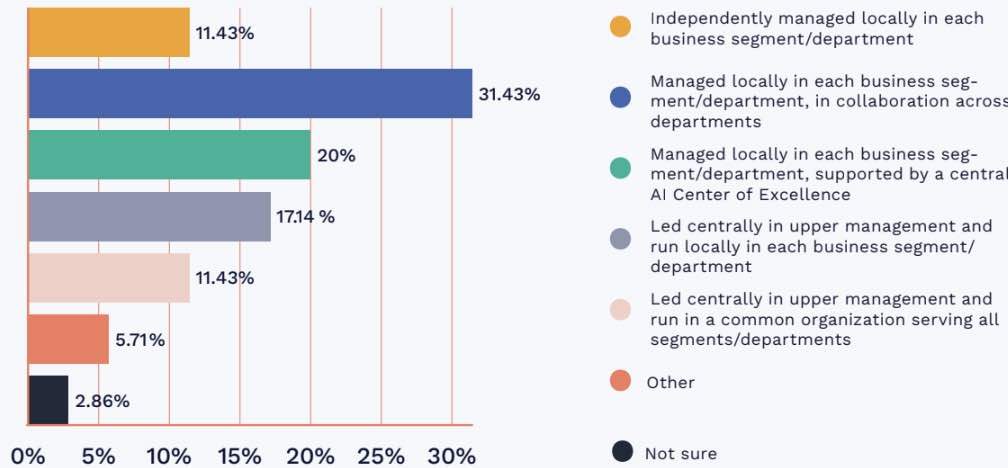Traditional organisations have high hopes for AI, but strategic shortcomings are severely restricting their ambitions.
That’s according to a new report from Silo AI, a startup based in Finland. The company recently earned headlines for building a large model (LLM) with multilingual capabilities but primarily focuses on bringing AI into established businesses. That gives it a window into mainstream adoption of the tech. The new research paints a more detailed picture.
The report analysed various traditional businesses and organisations. Silo surveyed companies from assorted industries, from manufacturing and construction to financial services and the public sector. Despite a median age of 87, all of them were engaging with artificial intelligence at some level.
Nearly 70% have experiments or projects in development, while 86% expect their projects to progress into production within the next 12 months. Almost two-thirds (65%) also have prior AI projects that have already progressed into production.
Their efforts, however, aren’t always successful. Almost half of them feel at best neutral about the results.
Digging into the data, Silo discovered that unclear strategies and absent executives are holding companies back. Most of the respondents don’t have a C-level representative who’s responsible for data and AI management, and the majority of projects are managed locally in each business unit.
This fractured landscape creates several problems.
“One risk is that data management is unstructured and governance unclear,” Peter Sarlin, the CEO and co-founder of Silo AI, told TNW.
“Another risk is that investments in AI and the integration of AI are relegated to different siloes and fragmented across an organisation, while research and development is a largely centralised endeavour.”
To mitigate these risks, Silo advises making someone in the C-suite responsible for incorporating AI into the organisation’s strategy. All the initiatives should also clearly align with specific business objectives.


Beyond the broader strategies, Silo suggests several specific measures. One is creating frameworks to assess the ROI of AI projects.
The new research provides evidence of the benefits. Just over a quarter of respondents already have such frameworks in place. However, 37.5% of organisations that are happy with their AI initiatives have developed these structures. Of those who feel neutral at best, only 15.7% have them.
Silo also advises organisations to establish an AI centre of excellence. These units work with different departments to make the projects accessible and cost-effective across the company.
“This holistic approach enables organisations to extract maximum value from their investments in AI,” Sarlin said.
That approach, he added, won’t deliver overnight results.
“It’s becoming clear that, like with any other technology, there are no quick wins with AI.”
“The greatest potential for value creation with AI is when the technology is deployed at the core of products, services, or processes.
“While this requires a long-term perspective and significant efforts, the more these products, services and processes are used, the more value they generate both as people become more comfortable using them and as the models learn and become better.”

